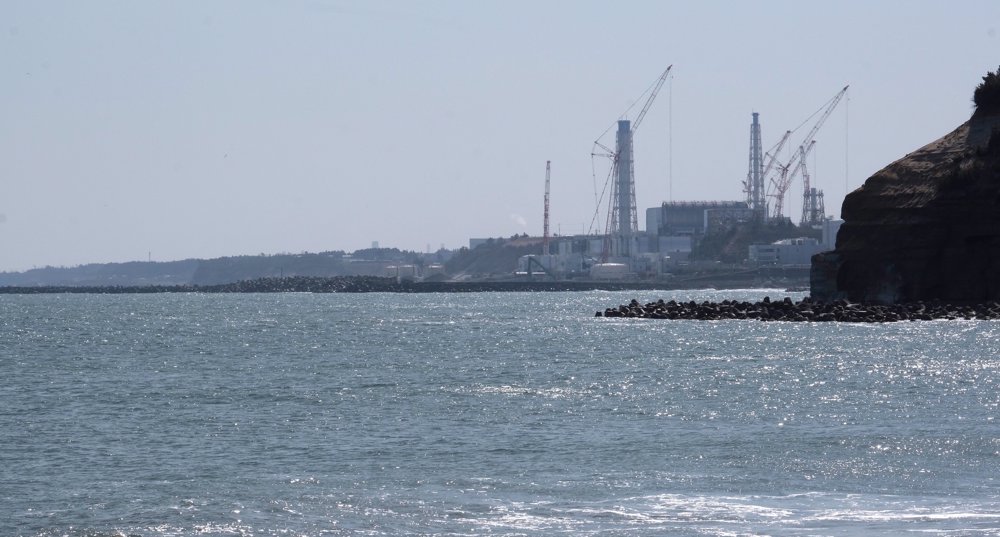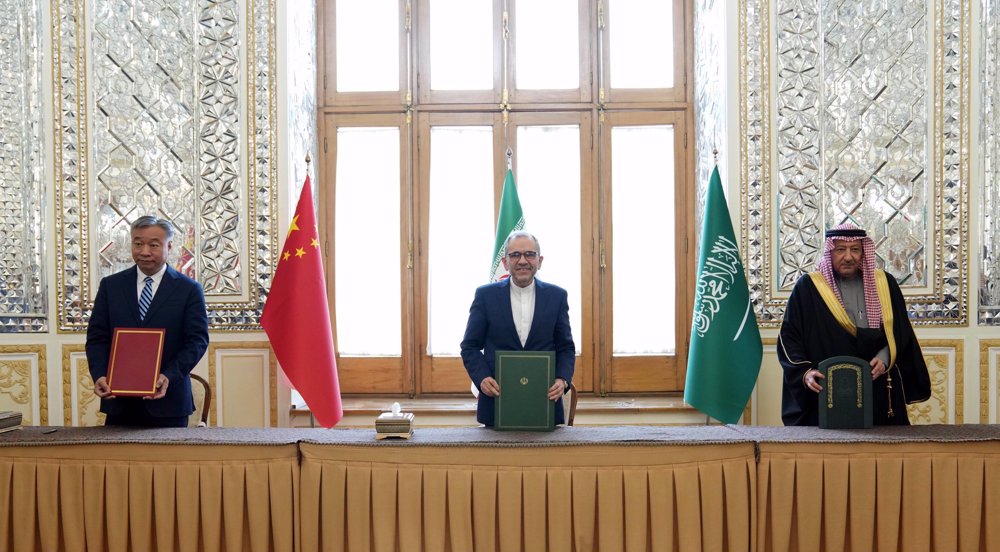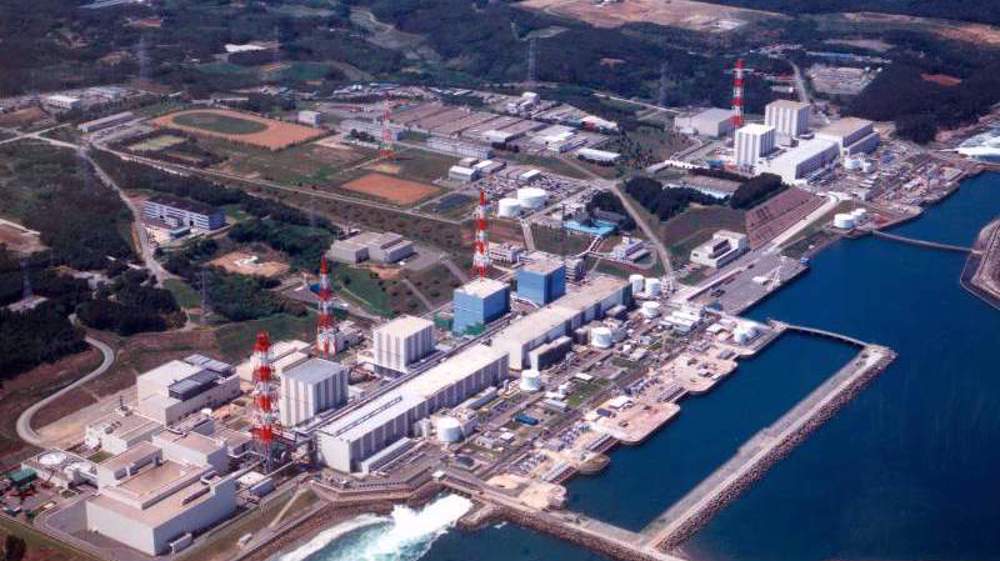Japan’s Fukushima water disposal plan irresponsible: Beijing, Seoul
Japan's neighbors China and South Korea have lashed out at the country for a controversial plan to dispose of more than one million tons of contaminated water from the wrecked Fukushima nuclear power plant by releasing it into the Pacific Ocean.
Japan’s Prime Minister Yoshihide Suga announced the plan on Tuesday, saying that Tokyo had decided to release the water into the ocean “in order to achieve Fukushima’s recovery.”
The nuclear plant, located on Japan’s northeast coast, was crippled after going into meltdown following an earthquake and tsunami in 2011.
Around 1.25 million tons of water, used to cool the reactors after the meltdown, are currently stored in tanks in and around the plant.
Saga, who described the disposal of the nuclear wastewater as the “most realistic” option, said it would take about two years to begin the release of the water and the process is expected to take decades.
“The Japanese government has compiled basic policies to release the processed water into the ocean, after ensuring the safety levels of the water… and while the government takes measures to prevent reputational damage,” Suga said.
“On the premise of strict compliance with regulatory standards that have been established, we select oceanic release,” he added.
China, however, denounced the move as “extremely irresponsible.”
The Chinese Foreign Ministry said in a statement on Tuesday that Tokyo had made the decision “without regard for domestic and foreign doubts and opposition.”
“This approach is extremely irresponsible and will seriously damage international public health and safety and the vital interests of the people of neighboring countries,” the Chinese ministry said.
South Korea also described the plan as “totally unacceptable,” saying that it would file a formal complaint with Tokyo.

Local fishing communities expressed oppositions as well, saying that the water discharge would undermine years of work to restore confidence in seafood from the region.
“They told us that they wouldn’t release the water into the sea without the support of fishermen,” Kanji Tachiya, who heads a local fisheries cooperative in Fukushima, told NHK ahead of the announcement.
“We can’t back this move to break that promise and release the water into the sea unilaterally,” he added.
Earlier in March, five special rapporteurs from the United Nations (UN) said that the contaminated water remained a risk and that the ocean discharge plan could not be an “acceptable solution.”
IAEA, US back Japan
The decision, however, was endorsed by the International Atomic Energy Agency (IAEA).
The IAEA said that nuclear plants around the world used a similar process to dispose of wastewater.
According to the agency, the water disposal is allowed since radioactive elements are removed from the water or are reduced to safe levels.
The United States also supports the decision, saying Japan has been managing the aftermath of the Fukushima disaster in “close coordination” with the IAEA.
“In this unique and challenging situation, Japan has weighed the options and effects, has been transparent about its decision, and appears to have adopted an approach in accordance with globally accepted nuclear safety standards,” said US State Department spokesman Ned Price.
But the environmental group Greenpeace Japan “strongly condemned” the decision.
It said that the disposal “completely disregards the human rights and interests of the people in Fukushima, wider Japan and the Asia-Pacific region.”
“The Japanese government has once again failed the people of Fukushima,” said Kazue Suzuki, the group’s climate and energy campaigner.
The radioactive water, which increases in quantity by about 140 tons a day, is now being stored in more than 1,000 tanks, and space at the site is expected to run out around next autumn.
To meet international standards before disposal, the nuclear wastewater, however, needs to be filtered to remove harmful isotopes.
The process, however, cannot remove tritium, an isotope of hydrogen that experts say will be harmful to human health in large doses.
The strategic calculus driving Iran-Kazakhstan ties
EU member states agree to impose indefinite freeze on Russian assets
Israeli military conducts new ground incursion in Syria’s Quneitra
Israeli forces kill Palestinian teenager in Gaza amid truce violations
Talk of Israeli attack on Hezbollah in line with Israel’s agenda: Lebanese MP
Scrutiny grows over Trump’s health after drowsy public appearances
VIDEO | Press TV's news headlines
Dollar no longer safe haven, US economic fragilities erode trust in it: Economist











 This makes it easy to access the Press TV website
This makes it easy to access the Press TV website